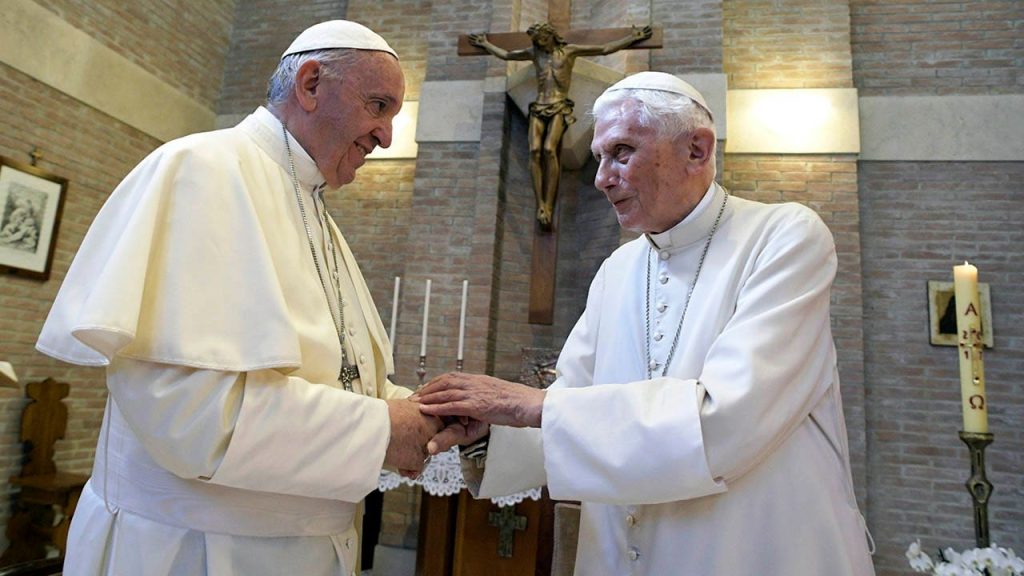In a book-length interview published recently, Pope Francis discussed the political “maneuvers” that took place during the two most recent papal elections, shedding light on previously confidential information. Francis reflected on the 2005 conclave that elected Benedict XVI as pope and the 2013 ballot in which he himself was elected, revealing details about the internal dynamics that influenced the outcomes of these elections. He explained how he was “used” by cardinals in 2005 who wanted to block Benedict’s election and how he himself became the focus of support in the 2013 conclave.
The book, titled “The Successor: My Memories of Benedict XVI,” is written in the form of a conversation with a correspondent for Spain’s ABC daily and comes at a delicate time for the 87-year-old Francis. Questions have been raised about his health and whether he might follow Benedict’s footsteps and resign. The revelations in the book are likely to generate interest and speculation about the future of the papacy and the process of electing a new pope. While Francis acknowledged the political calculations that influenced the papal elections, he denied rumors that he is planning to reform the conclave rules for future elections.
Francis revealed that during the 2005 conclave, some cardinals who did not want an “Italian” pope attempted to sway votes in his favor to block Benedict’s election. He put an end to this maneuvering by declaring he wouldn’t accept being pope, leading to Benedict’s election. In 2013, after Benedict’s resignation, there were also political maneuvers that resulted in Francis being elected. He described how he only realized he might become pope when cardinals began coalescing behind him and raising questions about his health. Ultimately, Francis was elected pope, succeeding Benedict XVI.
The book also discusses Francis’ relationship with Benedict’s longtime secretary, Archbishop Georg Gaenswein, who was initially fired and exiled from the Vatican for making decisions that made life difficult for Francis. Francis blames Gaenswein for allowing conservative opposition to Francis to flourish during Benedict’s retirement. Gaenswein was involved in incidents like the publication of a book co-authored by Cardinal Robert Sarah, which caused controversy as it appeared to be an attempt to influence Francis’ decision-making. Francis felt compelled to sideline Gaenswein after this incident and after Gaenswein published a critical memoir following Benedict’s death.
Francis denied that Benedict was behind any conservative attacks on him and insisted that Benedict always supported and defended him. He addressed criticism of his homily at Benedict’s funeral, explaining that it was in accordance with liturgical protocol and should not be interpreted as lacking in praise. Throughout the book, Francis provides insights into the internal dynamics within the Vatican and the papal elections, shedding light on the political calculations and maneuvers that influenced these historic events. The revelations in the book offer a behind-the-scenes look at the complex world of the papacy and the relationships between different figures within the Vatican.














